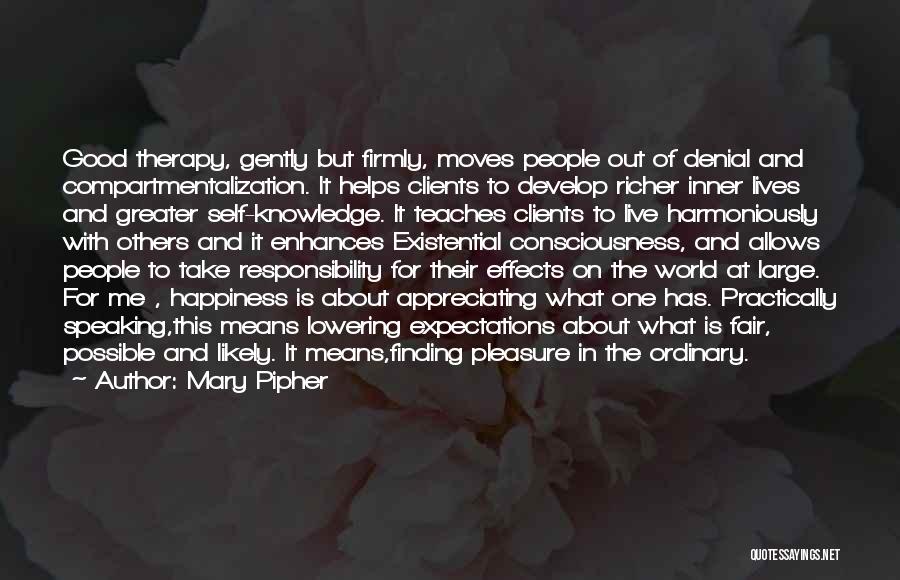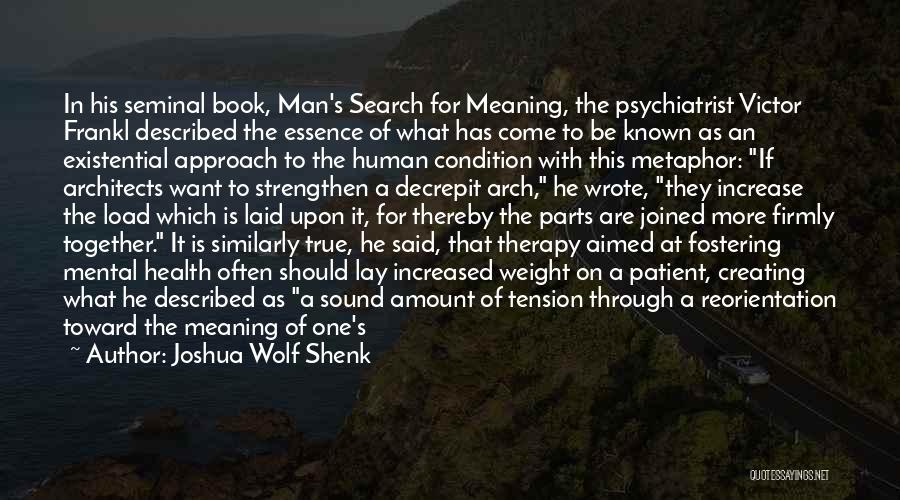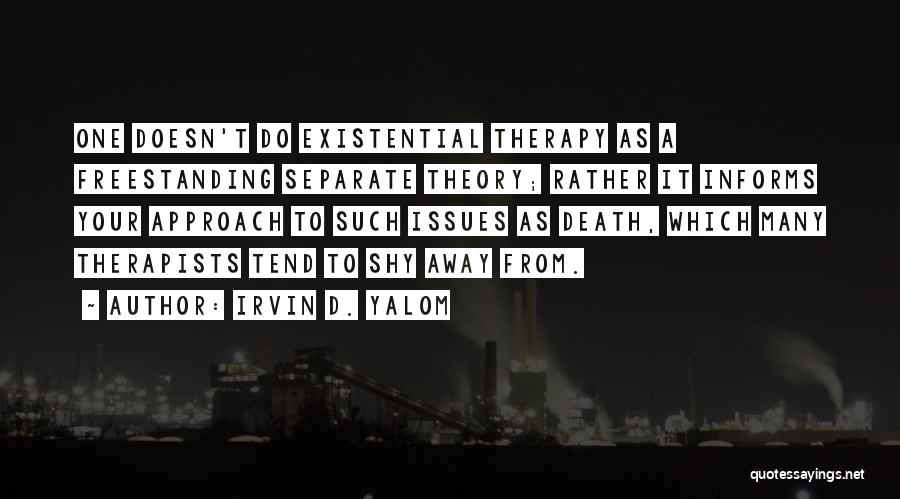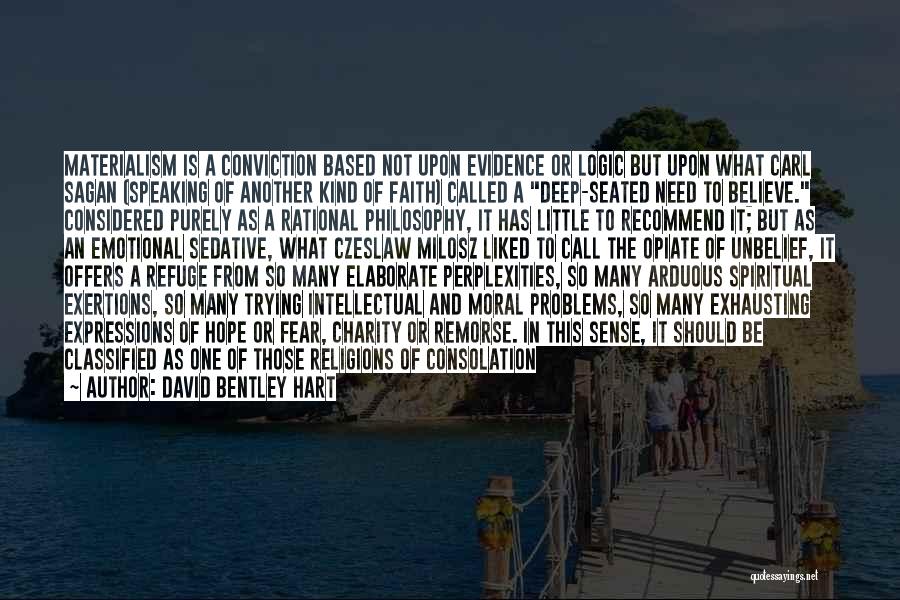Existential Therapy Quotes & Sayings
Enjoy reading and share 4 famous quotes about Existential Therapy with everyone.
Top Existential Therapy Quotes

Good therapy, gently but firmly, moves people out of denial and compartmentalization. It helps clients to develop richer inner lives and greater self-knowledge. It teaches clients to live harmoniously with others and it enhances Existential consciousness, and allows people to take responsibility for their effects on the world at large. For me , happiness is about appreciating what one has. Practically speaking,this means lowering expectations about what is fair, possible and likely. It means,finding pleasure in the ordinary. — Mary Pipher

In his seminal book, Man's Search for Meaning, the psychiatrist Victor Frankl described the essence of what has come to be known as an existential approach to the human condition with this metaphor: "If architects want to strengthen a decrepit arch," he wrote, "they increase the load which is laid upon it, for thereby the parts are joined more firmly together." It is similarly true, he said, that therapy aimed at fostering mental health often should lay increased weight on a patient, creating what he described as "a sound amount of tension through a reorientation toward the meaning of one's own life. — Joshua Wolf Shenk

One doesn't do existential therapy as a freestanding separate theory; rather it informs your approach to such issues as death, which many therapists tend to shy away from. — Irvin D. Yalom

Materialism is a conviction based not upon evidence or logic but upon what Carl Sagan (speaking of another kind of faith) called a "deep-seated need to believe." Considered purely as a rational philosophy, it has little to recommend it; but as an emotional sedative, what Czeslaw Milosz liked to call the opiate of unbelief, it offers a refuge from so many elaborate perplexities, so many arduous spiritual exertions, so many trying intellectual and moral problems, so many exhausting expressions of hope or fear, charity or remorse. In this sense, it should be classified as one of those religions of consolation whose purpose is not to engage the mind or will with the mysteries of being but merely to provide a palliative for existential grievances and private disappointments. Popular atheism is not a philosophy but a therapy. — David Bentley Hart





